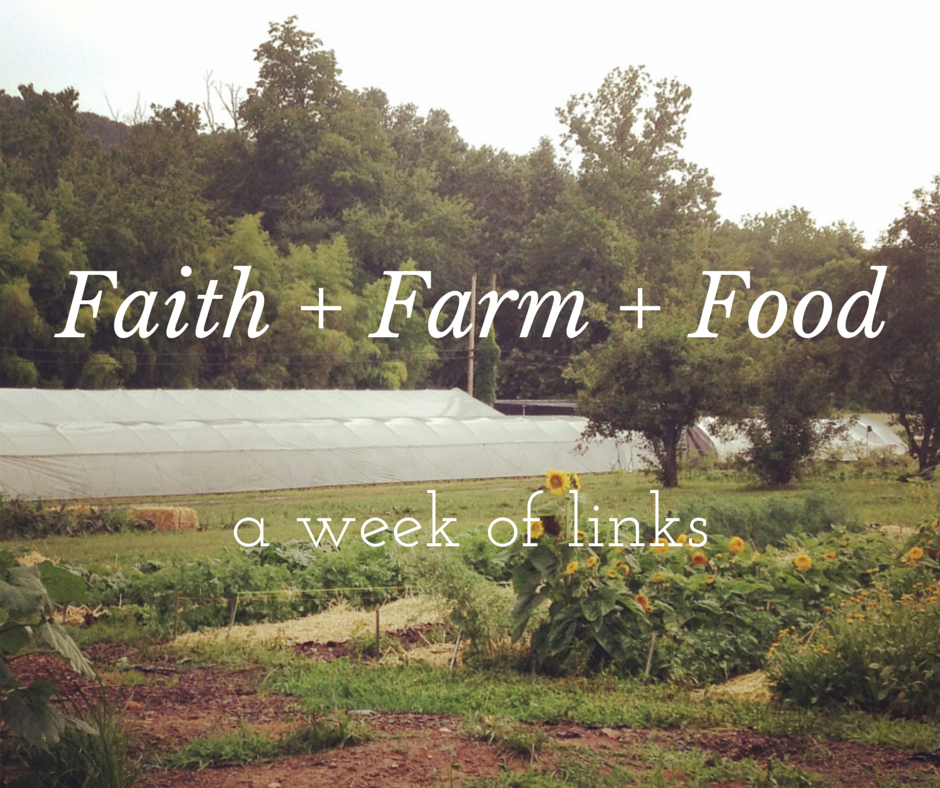Food & Faith Links: National Organizations

I’ve lived to regret my post-a-day format as I’ve lost a couple subscribers this week – the first time I’ve lost subscribers since I started the blog! However, I anticipate that future blogging will focus both on the faith/farm/food intersection and on church renewal, so I’m consoling myself with the thought that those readers will find a better home. And the next time I do this, it will probably be in one super-long post… hopefully with some more national ecumenical initiatives, as the list below is woefully short. I can’t even begin to describe how many secular national organizations there are that focus on the intersection of food and farming and justice. Where is the church in those conversations?
Here’s the final list:
Monday: Faith-based farms and gardens integrating Christian spirituality or faith formation
Tuesday: Regional faith-based food initiatives
Thursday: Blogs, books & authors on food & faith
Friday: National ecumenical non-profits working at the intersection of food & faith… below.
National, Ecumenical/Interfaith Non-Profits
GreenFaith offers resources for Food and Faith.
A Rocha US offers resources on Sustainable Food Systems and two demonstration projects. (Their sister organization in Canada has some great programs including an annual Good Seed Sunday for churches.)
Blessed Earth often integrates thinking on food and farming into their larger work of creation care.
National Farm Worker Ministry is a faith-based organization committed to justice for and empowerment of farm workers.
* * *
But overall, it seems that Christians tend to focus on the connections between poverty and hunger. We focus on feeding the poor.
In the context of poverty, we ask questions about justice and government policy. But we don’t seem to make connections between national farm policy and health and hunger issues.
On the secular side, there has been an extraordinary proliferation of publications and organizations addressing issues of farm policy and food security in the last twenty years. Why hasn’t the church created even one new national ecumenical organization focused on this intersection? Are we too in love with our narrative of decline to believe we can make a difference anymore?
Please tell me I’m missing something! What can you add?





Member discussion